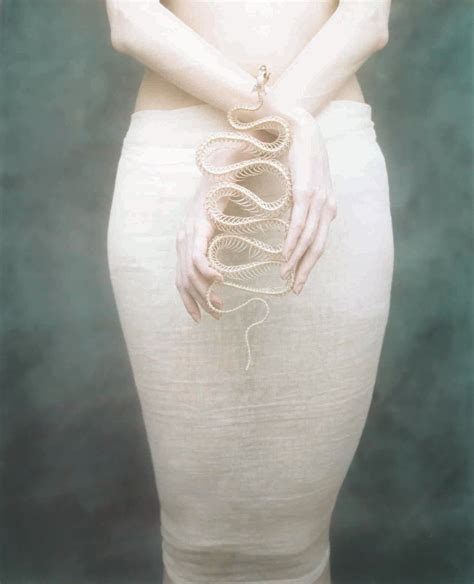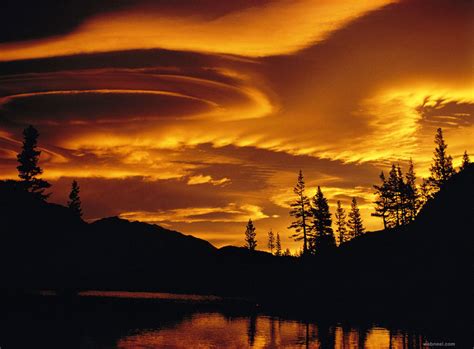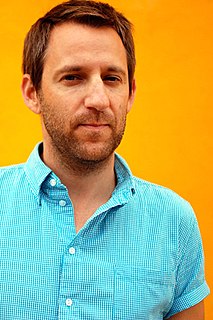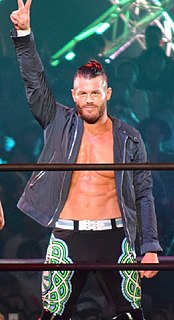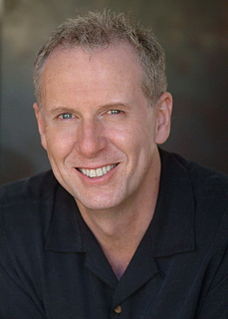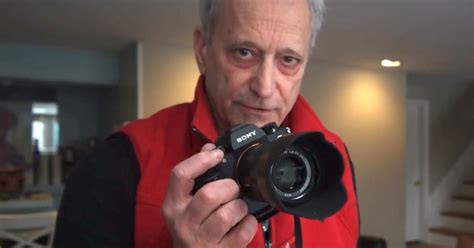A Quote by Joyce Tenneson
My early self-portraits appeared effortlessly and seemed like equivalents for my deeper emotions. Many critics remarked that the images had an almost other-worldly haunting presence. For me, they were simply my own reality at that point in my life. What I was trying to reveal was my inner soul in all its fragile complexity. Without knowing it, I was trying to peel back the layers that shroud and bind us all as we struggle to reveal our own authentic selves.
Quote Topics
Almost
Appeared
Authentic
Back
Bind
Complexity
Critics
Deeper
Early
Effortlessly
Emotions
Fragile
Had
Haunting
Images
Inner
Knowing
Layers
Life
Like
Many
Me
My Life
My Own
Other
Our
Own
Peel
Point
Portraits
Presence
Reality
Reveal
Seemed
Self
Selves
Shroud
Simply
Soul
Struggle
Trying
Us
Were
Without
Worldly
Related Quotes
At the heart of all photography is an urge to express our deepest personal feelings - to reveal our inner, hidden selves, to unlock the artist. Those of us who become photographers are never satisfied with just looking at someone else's expression of something that is dear to us. We must produce our own images, instead of buying postcards and photo books. We seek to make our own statements of individuality.
We were wise indeed, could we discern truly the signs of our own time; and by knowledge of its wants and advantages, wisely adjust our own position in it. Let us, instead of gazing idly into the obscure distance, look calmly around us, for a little, on the perplexed scene where we stand. Perhaps, on a more serious inspection, something of its perplexity will disappear, some of its distinctive characters and deeper tendencies more clearly reveal themselves; whereby our own relations to it, our own true aims and endeavors in it, may also become clearer.
We do not read in order to turn great works of fiction into simplistic replicas of our own realities, we read for the pure, sensual, and unadulterated pleasure of reading. And if we do so, our reward is the discovery of the many hidden layers within these works that do not merely reflect reality but reveal a spectrum of truths, thus intrinsically going against the grain of totalitarian mindsets.
What is the evolutionary value of blushing? It seems not to be to our advantage to do it, to involuntarily reveal our inner emotions. If we're trying to manipulate or lie, actions in furtherance of individual goals as opposed to the goals of others, blushing would not seem to be helpful. And yet everyone blushes, except the psychopath.
PRETTY LITTLE LIARS works as a metaphor for our central human experience: we have no way to objectively know about anything, no way to move forward with certainty, and yet move forward we must. We stumble through life, trying to find our own way, not knowing whom to listen to, whom to trust, whom to suspect, what to believe. But in that process we discover our most authentic selves.
After a time I found that I could almost listen to the silence, which had a dimension all of its own. I started to attend to its strange and beautiful texture, which of course, it was impossible to express in words. I discovered that I felt at home and alive in the silence, which compelled me to enter my interior world and around there. Without the distraction of constant conversation, the words on the page began to speak directly to my inner self. They were no long expressing ideas that were simply interesting intellectually, but were talking directly to my own yearning and perplexity.
As an emerging photojournalist in the early 70s, my focus was on trying to create stories for magazines to the exclusion of almost everything else. I wish someone had told me then that the most personally important pictures you’ll ever make are those about you and your life. I’m glad I had the chance to work for some great magazines, but I really miss those little everyday images, the ones that take place in and around your own life, which will never make the news. Don’t sell yourself short: photograph your own life, not just everyone else’s.
Most of us live our lives desperately trying to conceal the anguishing gap between our polished, aspirational, representational selves and our real, human, deeply flawed selves. Dunham lives hers in that gap, welcomes the rest of the world into it with boundless openheartedness, and writes about it with the kind of profound self-awareness and self-compassion that invite us to inhabit our own gaps and maybe even embrace them a little bit more, anguish over them a little bit less.
